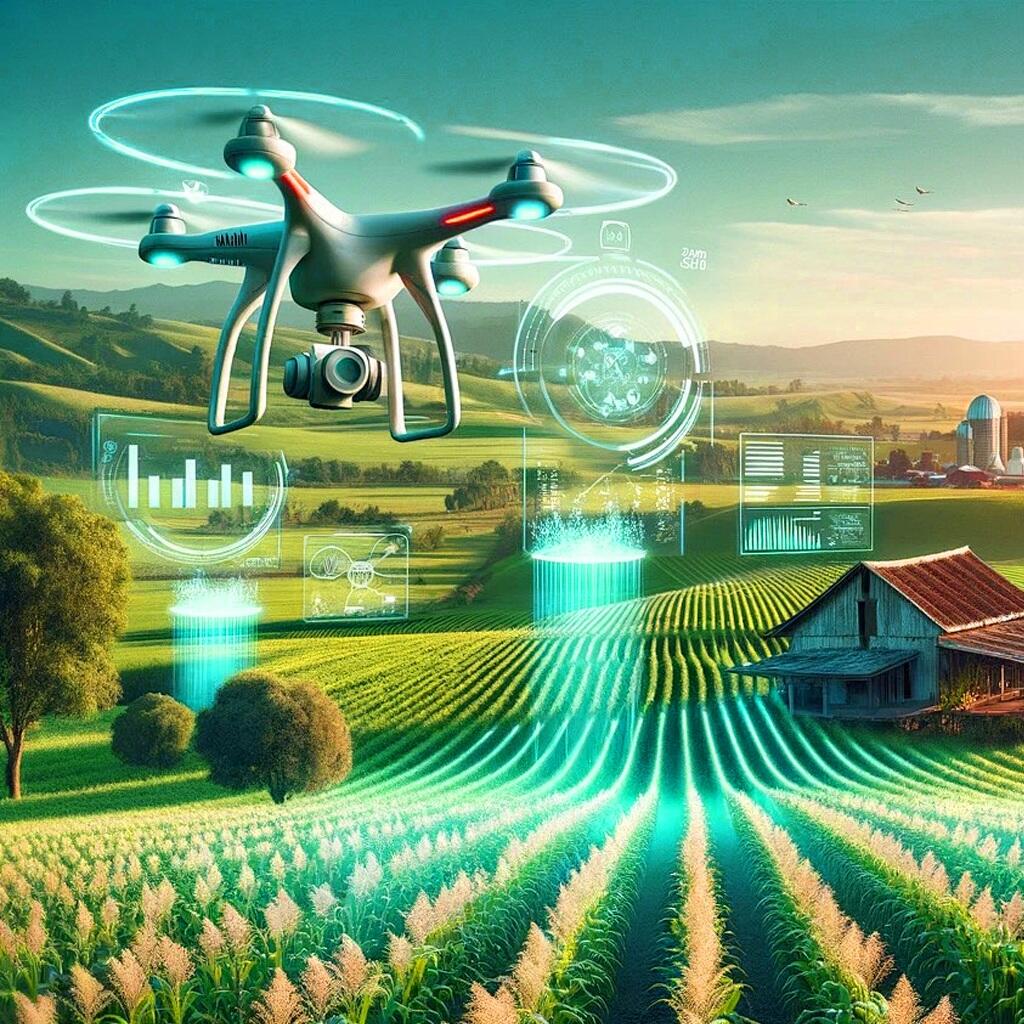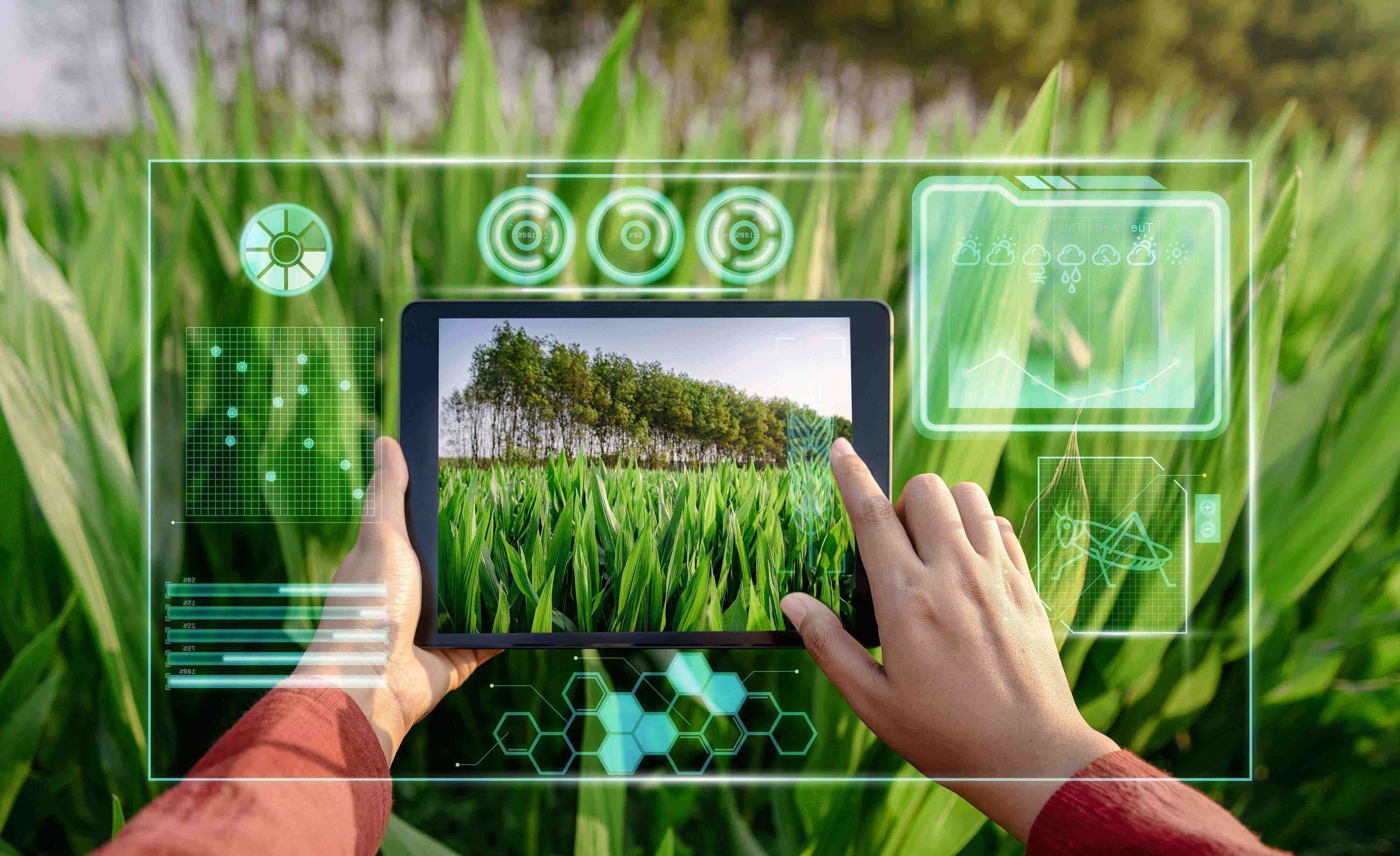ဤဆောင်းပါးတွင် အပူချိန်ဆင့်ကိရိယာများ၏ ဉာဏ်ရည်မြင့်စိုက်ပျိုးရေးတွင် အသုံးဝင်ပုံများဖြစ်သည့် အပူပေါင်းဂေဟာထိန်းချုပ်မှု၊ သစ်သီးခြံများအတွက် ဆင့်ကိရိယာကွန်ရက်များနှင့် ဒရုန်းများ၏ အာရုံခံမှုစနစ်များကို မိတ်ဆက်ပေးထားပြီး နိုင်ငံတကာမှ သင့်တော်သော အမှတ်တံဆိပ်များနှင့် မော်ဒယ်များကို အကြံပြုထားပါသည်။

I. နောက်ခံ - ဉာဏ်ရည်ထက်သော စိုက်ပျိုးရေးတွင် ပတ်ဝန်းကျင်အာရုံခံမှု၏ စိန်ခေါ်မှုများ
ကမ္ဘာ့ရာသီဥတု ပိုမိုမတည်ငြိမ်လာခြင်းနှင့်အတူ ရိုးရာစိုက်ပျိုးရေးသည် ပတ်ဝန်းကျင်ဆိုင်ရာ ကွဲပြားမှုများကို ကိုင်တွယ်ရာတွင် ခက်ခဲနေပါသည်။ IoT မှ အားပြုသော ဉာဏ်ရည်ထက်သော စိုက်ပျိုးရေးသည် သီးနှံဘဝသက်တမ်းတစ်လျှောက်လုံး အချိန်နှင့်တစ်ပြေးညီ စောင့်ကြည့်ခြင်းနှင့် တုံ့ပြန်မှုရှိသော အလိုအလျောက်စနစ်များကို အပူချိန်စင်ဆာများအပေါ် အများအားဖြင့် မှီခိုနေပါသည်။
II. အပူချိန်စင်ဆာနည်းပညာများ၏ အကျဉ်းချုပ်
အပူချိန်စင်ဆာများသည် ပုံစံအမျိုးမျိုးဖြင့် ရှိပါသည်- NTC/PTC သီးခြားဓာတ်ပေါင်းများ၊ RTDs၊ အပူဆန့်ကျင်ဘက်များနှင့် ဆီမီကွန်ဒပ်က်တာအခြေပြု စင်ဆာများ။ တစ်ခုချင်းစီသည် တိကျမှု၊ တုံ့ပြန်မှုအချိန်နှင့် ပတ်ဝန်းကျင်အပေါ် ခံနိုင်ရည်တို့တွင် ကွဲပြားမှုများ ရှိပါသည်။
ဥပမာ -
NTC သီးခြားဓာတ်ပေါင်းများ - ဒေသတွင်းပတ်ဝန်းကျင် စောင့်ကြည့်ရေးအတွက် သင့်တော်ပြီး စရိတ်နိမ့်ပြီး တုံ့ပြန်မှုမြန်ဆန်သည်
TMP117၊ DS18B20 ကဲ့သို့ ဒစ်ဂျစ်တယ်အပူချိန်ဆင်ဆာများ - ဒစ်ဂျစ်တယ်အင်တာဖေ့စ်များသည် အကွာအဝေးရှည်လမ်းကြောင်းအတွက် ပံ့ပိုးမှုပေးပါသည်
RTDs (PT100၊ PT1000 ကဲ့သို့) - အတိကျမှုမြင့်မားပြီး စိုက်ပျိုးရေးအပူချိန်ထိန်းချုပ်မှုအတွက် သင့်တော်ပါသည်
III. အသုံးပြုမှုအခြေအနေများ

1. ဉာဏ်ရည်မြင့် စိုက်ပျိုးခန်းများတွင် ပိတ်ခွင်းအပူချိန်ထိန်းချုပ်မှု
စိုက်ပျိုးခန်းများတစ်လွှဲလုံးတွင် ထည့်သွင်းထားသော ဆင်ဆာများသည် လေပန်ကာများနှင့် ရေဖျန်းစက်များကဲ့သို့ လုပ်ဆောင်သည့် ကိရိယာများမှတစ်ဆင့် ဇုန်အလိုက်ထိန်းချုပ်မှုကို ဖြစ်စေပြီး သီးနှံများ ကြီးထွားရာတွင် သင့်တော်သော သေးငယ်သည့်ရာသီဥတုကို ထိန်းသိမ်းပေးပါသည်။
TI ၏ TMP117 သို့မဟုတ် Sensirion ၏ SHT3x ကဲ့သို့ အတိကျမှုမြင့် ဆင်ဆာများသည် -40°C မှ 125°C အထိ ±0.1°C အတိကျမှုဖြင့် ယုံကြည်စိတ်ချရသော ဖတ်ရှုမှုများကို သေချာစေပါသည်။
2. သစ်သီးခြံများနှင့် အဝေးပြေးလမ်းများတွင် ဝိုင်ယာလက်စ်ဆင်ဆာကွန်ရက်များ
LoRa၊ Zigbee သို့မဟုတ် NB-IoT တို့နှင့် ပေါင်းစပ်၍ အပူချိန်ဆင်ဆာများသည် ဧရိယာကျယ်ပြန့်သော ပတ်ဝန်းကျင်ဆိုင်ရာ စောင့်ကြည့်မှုအတွက် ဝိုင်ယာလက်စ်နိုများဖြစ်လာပြီး ဗဟိုစနစ်ပလက်ဖောင်းများနှင့် ချိတ်ဆက်ပါသည်။
ADI ၏ ADT7420 သို့မဟုတ် Maxim ၏ MAX31865 ကဲ့သို့ စွမ်းအင်သက်သာပြီး ခိုင်ခံ့သော ဆင်ဆာများသည် ဤအသုံးပြုမှုများအတွက် အကောင်းဆုံးဖြစ်ပါသည်။
3. ပတ်ဝန်းကျင်ဆိုင်ရာ မြေပုံကို အချိန်နှင့်တစ်ပြေးညီ မြင်တွေ့နိုင်ရန် ဒရုန်းများနှင့် ရိုဘော့များ
ခေတ်မီစိုက်ပျိုးရေး ဒရုန်းများနှင့် မြေပြင် ရိုဘော့များသည် အပူချိန် စင်ဆာများကို ပေါင်းစပ်၍ သေးငယ်သော ရာသီဥတုများကို မြေပုံဆွဲခြင်း၊ ရောဂါဖြစ်လွယ်သော အခြေအနေများကို ဖော်ထုတ်ခြင်းနှင့် ဖျန်းလောင်းမှုကို အကောင်းဆုံးဖြစ်အောင် ပြုလုပ်ခြင်းတို့ကို ပြုလုပ်ပါသည်။
IV. ဥပမာလေ့လာချက် - အိန္ဒိယနိုင်ငံ မဟာရသြေတွင် ဉာဏ်ရည်မြင့် စိုက်ခင်းများ တပ်ဆင်ခြင်း
၂၀၂၄ ခုနှစ်တွင် အိန္ဒိယနိုင်ငံရှိ စိုက်ပျိုးရေး နည်းပညာကုမ္ပဏီတစ်ခုသည် LoRa ကို အသုံးပြု၍ မဟာရသြေရှိ ဉာဏ်ရည်မြင့် စိုက်ခင်းများတွင် NTC thermistors နှင့် SHT85 စင်ဆာများဖြင့် 200 ကျော် ဆိုင်းနိုး (node) ပါဝင်သော ပတ်ဝန်းကျင် စောင့်ကြည့်မှု စနစ်ကို တပ်ဆင်ခဲ့သည်။
အဖြေများ:
စွမ်းအင် အကောင်းဆုံးဖြစ်အောင်ပြုလုပ်ခြင်းဖြင့် ၂၈% ကုန်ကျစရိတ် လျော့နည်းခဲ့ခြင်း
ရောဂါကို အစောပိုင်းတွင် ဖော်ထုတ်ခြင်းတွင် ၉၃% အောင်မြင်မှုရှိခဲ့ခြင်း
ဧက တစ်ဧကလျှင် ပျမ်းမျှ ၁၅.၇% ထွက်နှုန်း တိုးတက်ခဲ့ခြင်း
အပူချိန်စင်ဆာများ | ဉာဏ်ရည်မြင့် စိုက်ပျိုးရေး | ပတ်ဝန်းကျင် စောင့်ကြည့်ခြင်း | ဒစ်ဂျစ်တယ်စင်ဆာများ | NTC thermistors